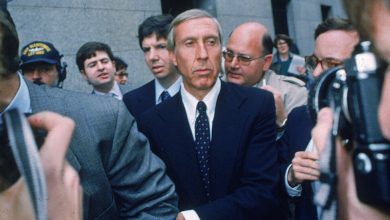James Greenfield, Globe-Trotting Reporter and Times Editor, Dies at 99

James L. Greenfield, an urbane journalist who covered postwar world affairs for Time magazine, served as a State Department official in the Kennedy and Johnson administrations, and for nearly 25 years was a senior editor of The New York Times, died on Sunday at home in the rural town of Washington, Conn. He was 99.
The cause was kidney failure, his wife, Ene Riisna, said.
As a foreign and diplomatic correspondent with an insider’s savvy about the workings of Washington, Mr. Greenfield was well placed for a career that took him from the globe-trotting reporter’s life in Europe and Asia into the company of world leaders as a government spokesman and then to the top echelons of the Times newsroom.
A protégé of A.M. Rosenthal, a rising star who later became executive editor, Mr. Greenfield was hired by The Times in 1967 and soon became a focus of controversy through no fault of his own.
Seeking to rein in the relative independence of The Times’s Washington bureau, Mr. Rosenthal in 1968 urged the publisher, Arthur O. Sulzberger, to name Mr. Greenfield bureau chief, replacing the popular Tom Wicker, who also wrote a political column.
When Mr. Wicker and some colleagues threatened to resign, Mr. Sulzberger withdrew the proposed appointment, and the widely publicized contretemps ended with bruised feelings all around. Mr. Greenfield resigned and joined Westinghouse Broadcasting as a vice president. But in 1969 he was rehired by The Times as foreign editor, and over the next seven years he supervised the newspaper’s coverage of international affairs, including the Vietnam War.
In 1971, he joined Mr. Rosenthal, Mr. Sulzberger and other Times leaders in deciding to publish the Pentagon Papers, the secret Defense Department study of American duplicity in Vietnam. As project editor, Mr. Greenfield oversaw the preparation of articles whose publication, challenged by the Nixon administration, won a historic Supreme Court victory for freedom of the press and the Pulitzer Prize for public service.




